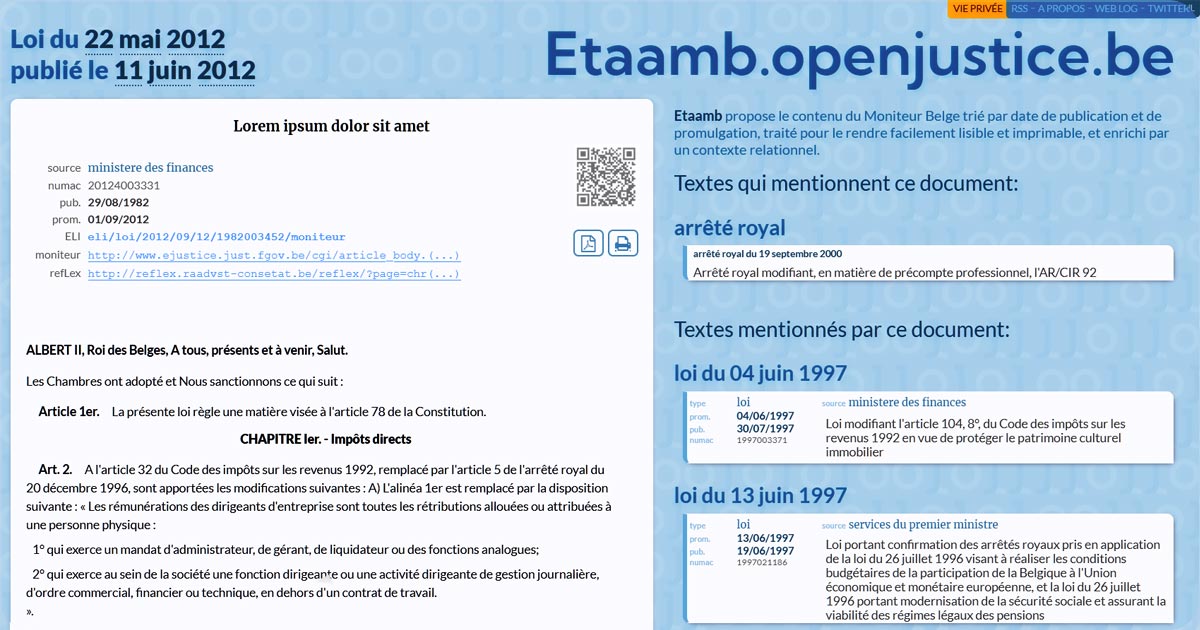- Joined
- Jan 29, 2005
- Messages
- 80,517
- Country
- Germany
Yesterday, September 4, Prince Laurent and Princess Claire attended a reception hosted by the Ambassador of the Maldives in Brussels to celebrate the Maldives' National Day:
i image him callling wim in the middle of the night to tell him these thingsInteresting ...
Hahahaha, it's funny because it's true.i image him callling wim in the middle of the night to tell him these things
I don't think it is legally possible to renounce the title of Prince of Belgium as the title is conferred by royal decree and the current relevant royal decree in force (King Philippe's decree of 2015) makes no provisions for renunciation.If he wants to "leave Belgium behind " will he renounce his Prince of Belgium title and simply be Laurent Saxe-Coburg?

 www.instagram.com
www.instagram.com

 www.instagram.com
www.instagram.com

 www.instagram.com
www.instagram.com

 www.instagram.com
www.instagram.com
If he wants to "leave Belgium behind " will he renounce his Prince of Belgium title and simply be Laurent Saxe-Coburg?
I don't think it is legally possible to renounce the title of Prince of Belgium as the title is conferred by royal decree and the current relevant royal decree in force (King Philippe's decree of 2015) makes no provisions for renunciation.

Interesting ...
Source: Italian Citizenship by Descent in Canada | Canadian Consulate LocationsWell, it means that obtaining Italian dual citizenship (...) is not exactly difficult but there are rules which can prevent an individual from proceeding with a particular ancestral claim. For example, females born prior to 1st January 1948 and ancestors who renounced their right to Italian citizenship cannot qualify as an ancestral tie.
I'm afraid Paola doesn't qualify as ancestral tie... as she was born before 1948 and probably also gave up her Italian citizenship?! However, it seems that he can still apply based on his Italian grandparents. That doesn't mean imho that they are de jure Italian citizens but that there is a possi ility to request citizenship based on his descendance from Italian (great)grandparents.
Source: Italian Citizenship by Descent in Canada | Canadian Consulate Locations

 conslosangeles.esteri.it
conslosangeles.esteri.it
What does Belgian law specify about people opting for another citizenship? Are they ok with dual citizenship or does he run the risk of loosing his Belgian citizenship?

Yes it's accurate, in my opinion. Thanks for including the reference to the 1983 ruling of the italian Constitutional Court, which I've read with interest.Thanks for the link! Ordinarily, I would trust a business specializing in assisting with citizenship applications to provide accurate information. However, in this case, what they say appears to be at odds with information I read elsewhere in also seemingly reliable sources, so I feel less certain.
My understanding from those other sources was that although Paola automatically lost her Italian citizenship upon marriage to a non-Italian, the Italian Constitutional Court ruling no. 30 of January 28, 1983 determined that the law stripping women who married non-Italians of their citizenship violated the Constitution, and as a result of the ruling, women who married non-Italians after the Italian Constitution became law on January 1, 1948 are retroactively deemed to have retained their Italian citizenship. If my understanding is correct, that would include Paola, as she did not marry Albert until 1959.
